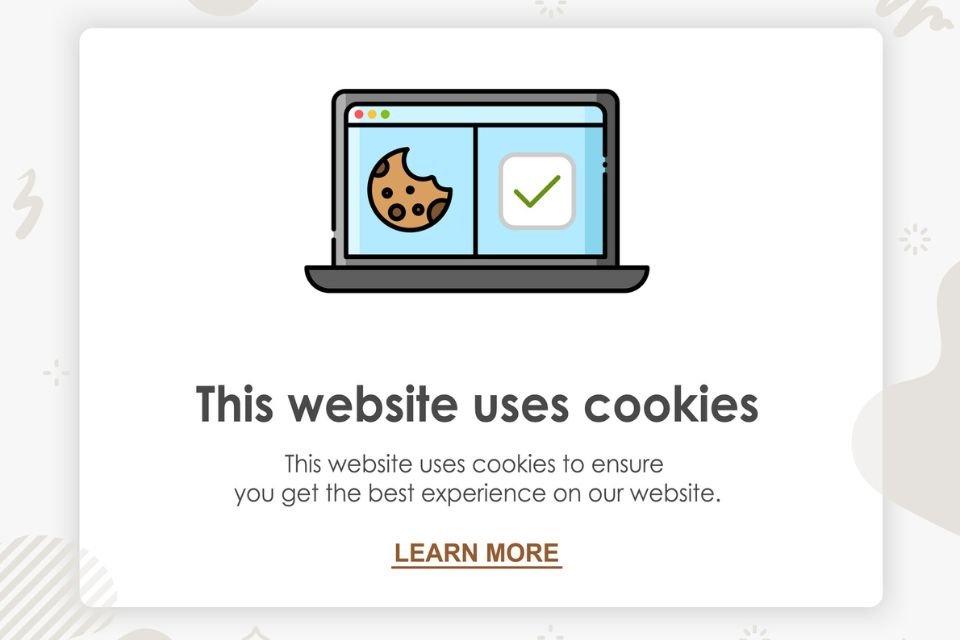Almost every website you visit these days displays information about cookies. These are already part of the browsing experience and often raises questions, especially regarding security.
Over the years, warnings about these have become more common due to the General Data Protection Law (LGPD). However, it is normal for the user to click the “Accept” button without thinking much to access the site content. So the question that remains is: Is this true?
If you have this question, let’s talk a little more about what cookies are, the risks associated with them, and other topics. Check out!
What are cookies?
In a simplified way, we can define cookies as follows: small text files saved in the browser. They help you personalize your browsing experience by saving information for your next visit to a particular area.
In most cases, the information stored includes purchase history or an advertising recommendation. If the user wishes, it is possible to manually delete this data from the device or allow it to be stored only for a certain period of time.
A practical example of this is when you visit a store’s website. While browsing through products and adding products to the cart, The page uses a cookie to store this data. In this way, it is possible to keep this data saved even if the page is closed.
Interestingly, this feature emerged precisely thanks to shopping carts on commercial websites. They were created in 1994 by an employee of Netscape Communications, and since then they have been widely used on pages in a wide variety of segments.

What does it mean to accept cookies from a website?
If you accept a website’s cookie terms, you automatically consent to these small text files being stored on your device when you visit a page.
As we mentioned in the previous title, cookies are used for different purposes. Among the main ones:
- the ability to remember login information;
- personalize user experience;
- monitor browsing behavior;
- Provide targeted advertising.
When you accept cookies from a website, you consent to it collecting information about your online activities. This includes granting access to data such as pages visited, browsing preferences, and page interactions.
This information may be used by the website and third parties for various purposes, such as improving the functionality of the website, presenting relevant content and targeting advertising based on your interests.
Is it dangerous to accept cookies?
You now understand that accepting cookies is not mandatory. However, there is still a question that may cross your mind: Is there any danger in accepting these?
I go directly to the answer: It depends. Generally speaking, they only store random codes that can identify users. In other words: they don’t store credit card data and stuff like that.
However, there is a possibility that information such as your name, email address or phone number may be stored. In such a case, the page may share such data with other partner sites, for example.
Another important point concerns shared devices. If you use a cookie to enable your account to log in to some services, e.g. someone else could access important data. Therefore, log out of important websites before releasing your device.
What are the risks associated with the use of cookies?
Although accepting cookies from a website is not dangerous, there are some risks associated with this action. Check out the main ones below:
Privacy violations
Some of these may track your online activities without your explicit consent, which may result in the collection of sensitive personal information without your awareness.
Behavior monitoring
Cookies may be used for the following purposes: Create user profiles and monitor their online behavior. For many people, this is invasive and compromises privacy.

Exposure to cyber attacks
Hijacking of cookies by hackers can lead to the theft of personal information such as login information, credit card records and other sensitive data.
Cyber security
Some cookies may be malicious and Exploit vulnerabilities in browsers or devices. In many cases, they are used to inject malicious code, conduct phishing attacks, or redirect to fake websites.
unwanted tracking
Tracking sources are used by advertising companies to track users across websites, recording their interests and browsing methods. This may result in excessive and invasive targeted advertising and may compromise user privacy.
Cookies and LGPD in the privacy policy
To aid user transparency, the LGPD began requiring websites to offer visitors the option to accept or customize the cookies used.
After this obligation; Sites have begun to inform their privacy policies on how they handle data storage. For LGPD, it is important that websites operate according to certain principles such as necessity, transparency and purpose.
Therefore, if you want to limit this collection of information, use your browser settings or take a few seconds to specify what data a website may receive during your visit.
We hope this content answered all your questions. Share it with your followers and get the opportunity to read some ways to protect yourself in case your personal data is leaked. To the next one!
Source: Tec Mundo
I am a passionate and hardworking journalist with an eye for detail. I specialize in the field of news reporting, and have been writing for Gadget Onus, a renowned online news site, since 2019. As the author of their Hot News section, I’m proud to be at the forefront of today’s headlines and current affairs.













